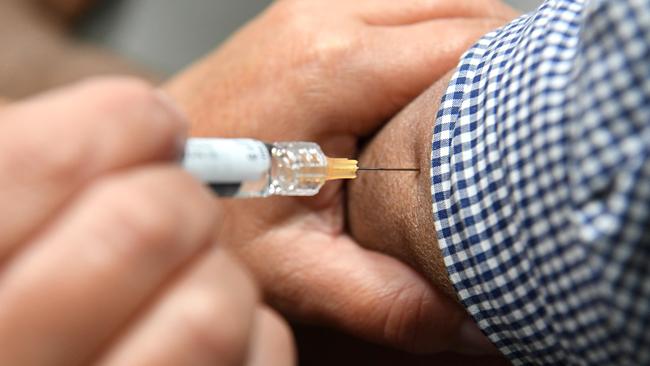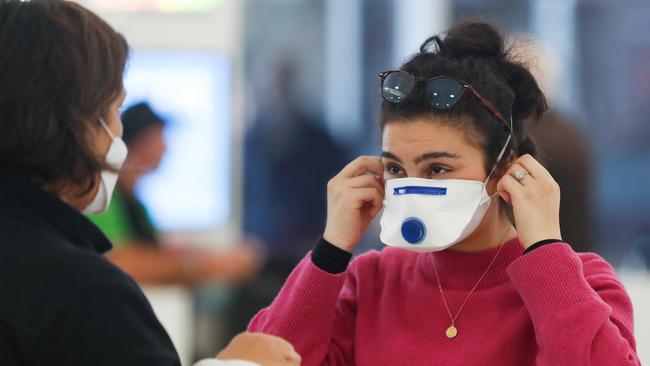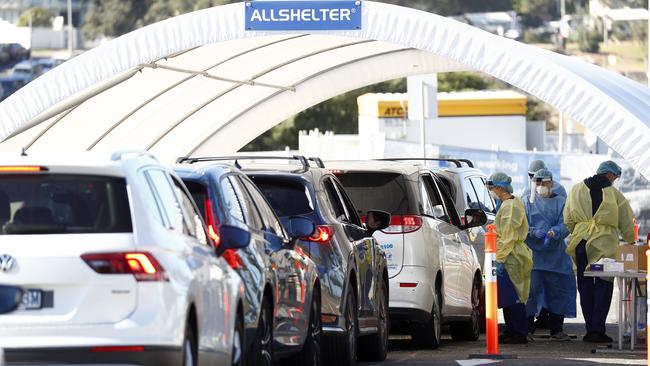Coronavirus lockdown keeping flu infections low
Health officials predicted a deadly flu season across Australia as coronavirus swept the globe, but despite the warnings there has been an unexpected upside amid the pandemic.

NSW
Don't miss out on the headlines from NSW. Followed categories will be added to My News.
- Treasurer confirms: ‘Yes, Australia is in recession now’
- Major discounts revealed: How NSW’s cruises will recover
Keeping the state cooped up inside has had a silver lining for the NSW Healthcare system – it stopped what was expected to be a deadly flu season in its track.
Just over 7200 people have been diagnosed with influenza in the state so far this season – a record low compared to more than 15,000 cases in the same period in 2019.

The week-on-week numbers are also declining with 10 cases diagnosed in the week to May 23, compared to 17 in the week prior.
The low rate of influenza came after an initial peak in January and February when cases were rapidly multiplying and on track to be more severe than the previous year.
There were 1600 cases as at January 25 compared to 1767 at the time last year.
And by February 22, NSW had 4,465 cases, an increase from February 2019 when 4,046 cases were recorded.
Health experts say the plateau in infection is a result of people staying inside during the COVID-19 pandemic, a growing demand for flu shots and the lack of international travellers visiting the country.
It comes as no new cases of COVID-19 were detected in the state out of the 7,018 tests conducted in the past 24 hours.
Infectious diseases expert Nigel McMillan said by quarantining overseas travellers, NSW stopped the “seeding” of influenza in the community and better hygiene prevented the spreading.

“Part of it (the decrease in cases) will be because we have fewer travellers, but the other part is the precautions we have taken for COVID-19. That is the stuff we want to happen for influenza as well. We are not getting the seeding in from the northern hemisphere and then not getting the spread because of physical distancing and hygiene practices,” Mr McMillan said.
“It may come back if we don’t keep it up. It’s the hand-to face stuff and the coughing etiquette that really matters.”
Mr McMillan said the flu shot has helped prevent flu related hospitalisations.
“The vaccine will stop the serious consequences of influenza. Rates of hospitalisation will go way down. Generally, not a vast amount of the population gets the flu shot but this year it is different.”

Newtown GP and Australian Medical Association NSW President Dr Danielle McMullen said doctors were initially concerned about 2020 having a very dangerous flu season.
“We did see that January and February this year had unexpectedly high rates of the flu, so we were quite concerned about the flu season but one of the benefits of going into lockdown is that we also saw less flu,” Dr McMullen said.
“Secondly, we’ve had an excellent uptake in flu vaccines. In NSW, 2.8m doses of flu vaccines were handed out. We have already at this stage administered more vaccines than we would normally have in the whole season which usually goes until July.
“We are well ahead of previous seasons to the point where we are concerned about having enough supply for people.”
Ms McMullen said she is pleased that there has not been a double whammy of flu and COVID in NSW.
“We still need to see if the flu numbers will increase now things are opening back up,” she said.

